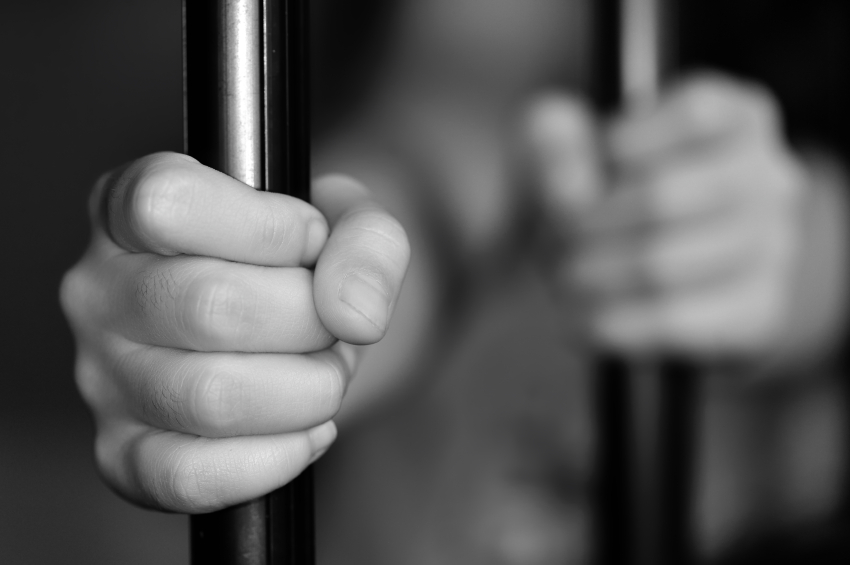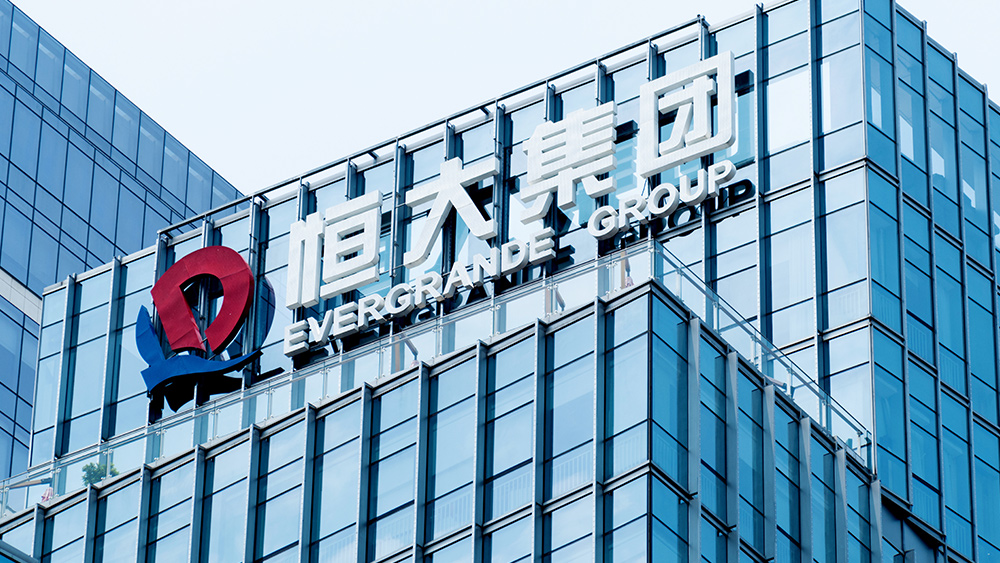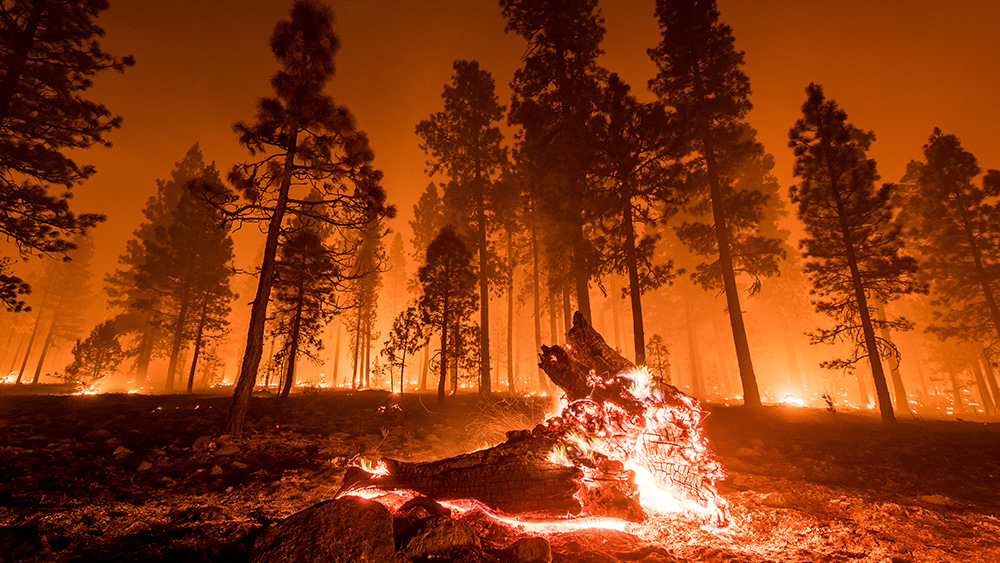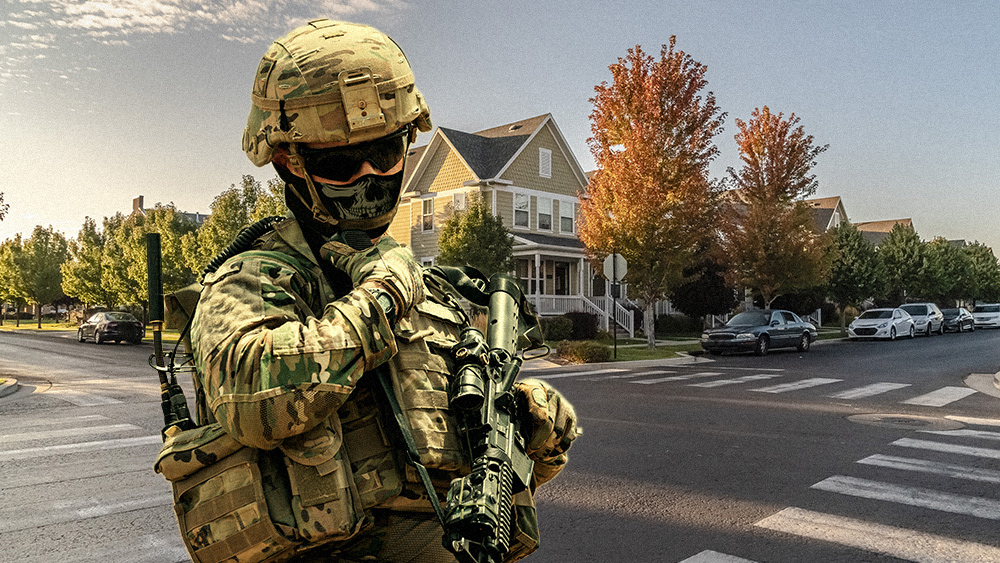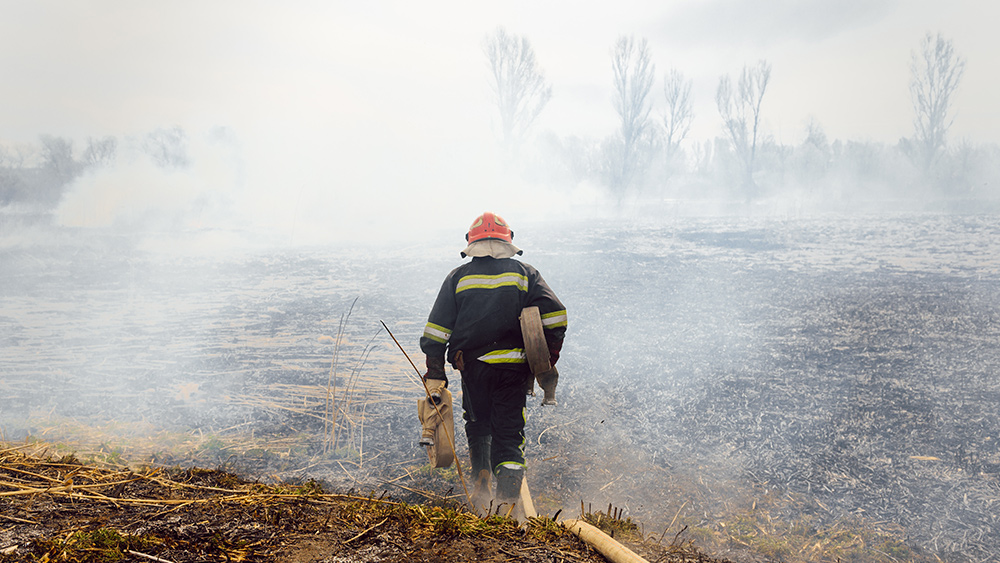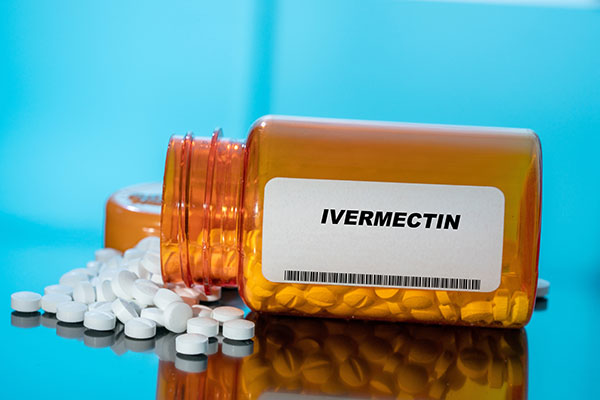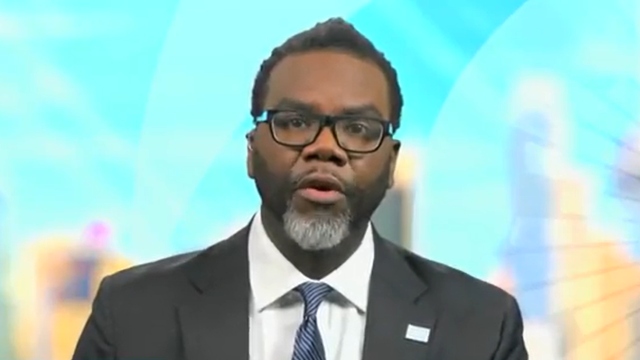Driverless car gets stuck in wet concrete in San Francisco a few days after CPUC approves robotaxi expansion services
08/21/2023 / By Laura Harris

A few days after the California Public Utilities Commission (CPUC) agreed to expand driverless taxi services in San Francisco, a Cruise AV self-driving robotaxi was immobilized in the wet concrete of a construction site on Golden Gate Avenue between Fillmore and Steiner Street.
The Chevrolet Bolt EV-based autonomous vehicle (AV), equipped with roof-mounted sensors, was spotted by Paul Harvey, a 74-year-old retired contractor residing in the Western Addition neighborhood. The car appeared tilted forward, its front wheels ensnared in the setting concrete.
“I thought it was funny,” Harvey said during an interview with San Francisco Gate. “I was kind of pleased because it illustrated how creepy and weird the whole thing is to me.”
Cruise, a subsidiary of General Motors, promptly confirmed the incident through a reply to a post on “X,” formerly known as Twitter, assuring the public that the vehicle had been retrieved. “One of our AVs drove into a construction area and stopped in wet concrete. This vehicle has already been recovered, and we’re in communication with the city about this,” the statement read.
However, this wasn’t the first time AVs have been involved in this kind of incident. For instance, on August 11, ten Cruise AVs blocked a street in San Francisco for approximately 20 minutes due to “wireless connectivity issues” caused by the high volume of people attending the Outside Lands music festival in the North Beach district of San Francisco.
In January, even before the expansion of robotaxi services, a Cruise driverless vehicle reportedly failed to stop in an area where firefighters were operating. Similarly, in May, a Waymo AV blocked a fire vehicle while attempting to reverse into a fire station.
Still, self-driving companies like Cruise and Waymo, a subsidiary of Alphabet (Google’s parent company), constantly defended their safety records.
San Francisco officials want to stop 24/7 robotaxi operations after a series of unfortunate incidents
No wonder, San Francisco officials are now taking a stand against the rapid expansion of robotaxi services in the city following the traffic jam and getting stuck in wet concrete incidents. (Related: Self-driving cars are causing traffic incidents all over San Francisco.)
City Attorney David Chiu has taken a proactive stance by filing motions with the CPUC. The motion, submitted with the backing of city officials, contends that allowing companies like Cruise and Alphabet-owned Waymo to operate without limitations on geographic area, service hours and fleet size could bring about “serious harm” in the city. The motions underscore the urgency of temporary permit suspensions to thoroughly assess and mitigate potential risks.
Aaron Peskin, the president of the Board of Supervisors in San Francisco, echoed this concern. Peskin intended to appeal the decision of the CPUC after allowing paid robotaxi services throughout the city.
Even residents of San Francisco have been really vocal about their fears of becoming a high-stakes testing ground for unproven AV technology. The spate of crashes and breakdowns, coupled with the recent stuck-in-concrete incident, has strengthened their arguments that unchecked robotaxi expansion could endanger transportation.
Learn more about self-driving cars at RoboCars.news.
Despite these mishaps, Cruise is expanding to other cities. Watch this clip of a Cruise vehicle in Metro Phoenix.
This video is from the channel Calaz InfoWarrior on Brighteon.com.
More related stories:
Young protesters use traffic cones to paralyze self-driving cars in San Francisco.
Study finds lasers can blind self-driving cars and make them crash into objects or pedestrians.
Sources include:
Submit a correction >>
Tagged Under:
autonomous cars, autonomous vehicles, big government, computing, Dangerous, driverless cars, future tech, Glitch, information technology, inventions, national security, products, road safety, robo taxis, robocars, robotics, San Francisco, self-driving cars, traffic, transportation
This article may contain statements that reflect the opinion of the author
RECENT NEWS & ARTICLES
COPYRIGHT © 2017 BIG GOVERNMENT NEWS



